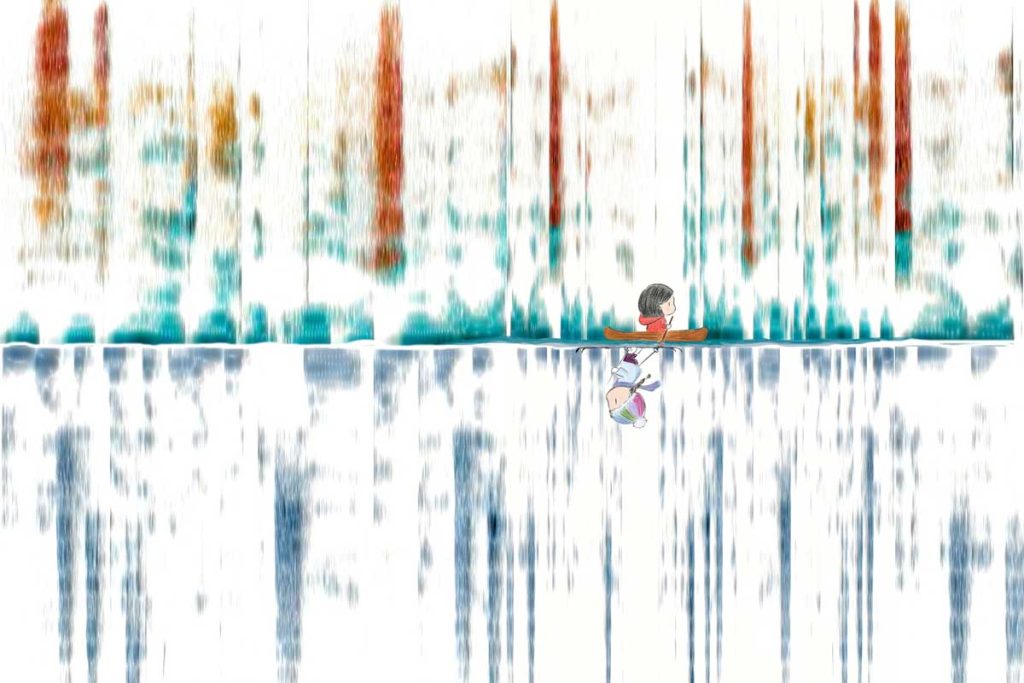Third Place & People’s Choice Winner 2023
| Submitted by: | Lujia Yang |
| Department: | Communication Sciences and Disorders |
| Faculty: | Rehab Medicine |
“I feel like a different person when speaking another language.” a sentiment shared by many multilingual individuals. The mystery of such identity shifts may lie in the nuances of speech sounds. Just as everyone has a unique fingerprint, each of us also possesses “speech-prints”.
The image displayed here is my “speech-print”, the spectrogram of sentences spoken in two distinct languages. As a Mandarin-English bilingual, I feel profoundly different when speaking each language, and losing either would be like losing a part of my identity. Speaking Mandarin feels like taking a leisurely boat ride through a colorful landscape – relaxed and shiny, while speaking English feels like skiing down a steep mountain, where I must be brave and cautious at the same time. Despite these differences, the speech in both languages blends in certain ways and forms who I am. Like many other bilinguals, Losing either of these languages would be like losing a part of my identity.
Canada boasts over 200 languages. While considerable attention has been paid to teaching major languages, preserving heritage languages has received less attention. Through the collection and interpretation of speech from individuals with varying backgrounds and experiences, my study aims to investigate how individuals’ experiences shape their speech and how we can protect minority languages and their cultural heritage.

